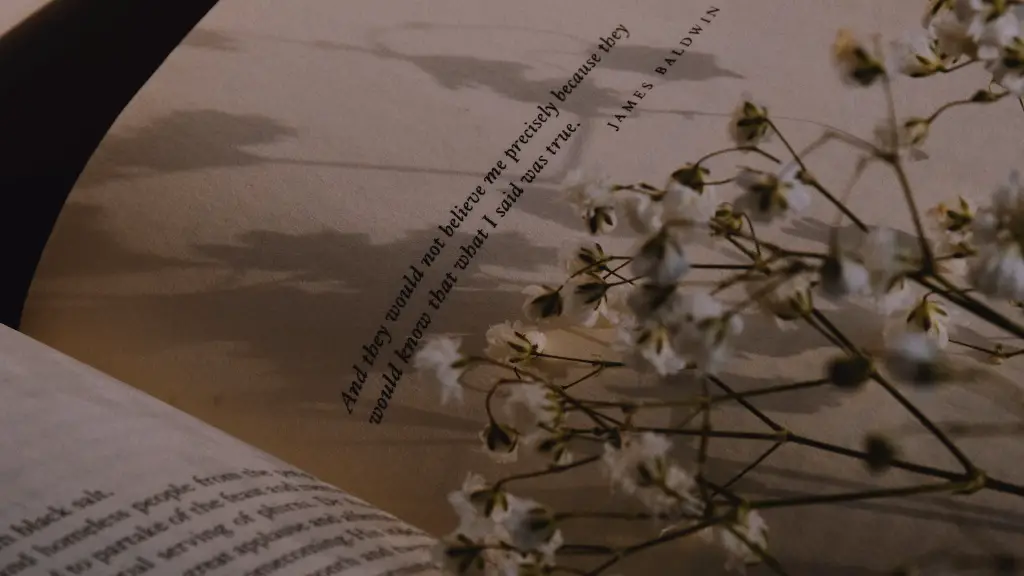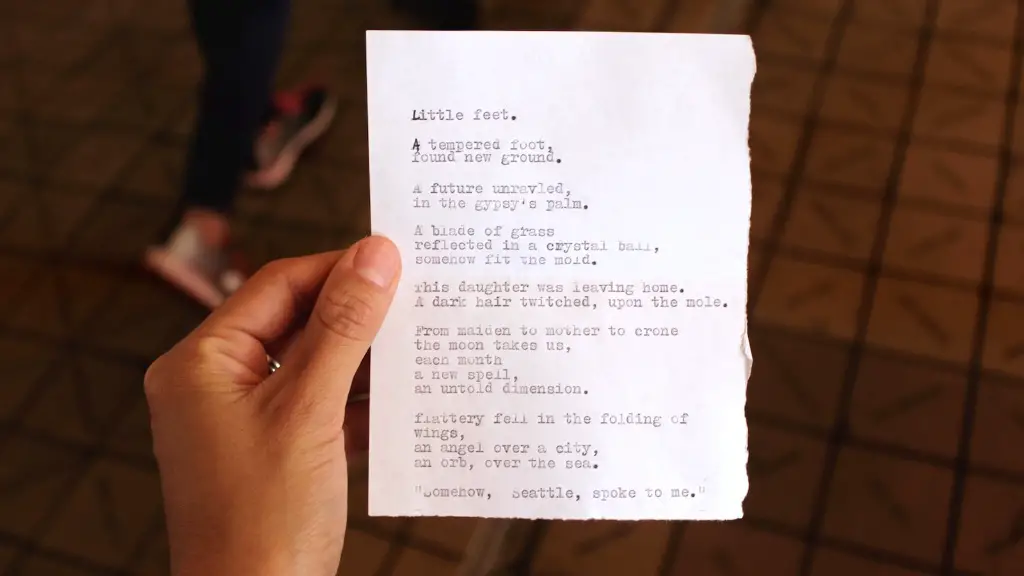Robert Frost’s poem, “Out, Out—,” can be seen as a directed commentary on life. The poem tells the sad story of a young boy, who loses his life while working at his wood cutting job. It speaks of the swiftness with which life can be taken away and how this human mortality can be sometimes judged by forces beyond our control. This central theme is unfolded meticulously throughout the poem by Frost, who uses vivid imagery and complex metaphors to get his point across.
The tone of the poem is quite melancholic, with Frost creating an awareness about the fragility of life. It begins with the young boy, who is living a simple life, eating a meal before he is distracted from his supper. He is then called by his sister to do his job, cutting down a birch tree which will later be used as fuel. As he is going about this task, he suddenly experiences a great pain in his hand which leads to his death.
The poem’s use of diction is heavily imbued with a sense of sorrow and sadness; words like “buzz”, “whined”, “earth takes” and “grimed” are used to emphasize the delicate nature of human life. Frost also effectively brings out the theme of mortality with the use of lines like “And they, since they Were not the one dead, turned to their affairs”, which suggest that life will keep carrying on even after death.
The main theme of “Out, Out—” can thus be summed up as ‘the fragility of life’, a lesson that is made clear by Frost’s poetic talent. This idea is mixed with an acceptance that life sometimes meets with an untimely end – something that has to be accepted as part of the human experience. This can also be seen as a commentary on the greater forces that determine our fate in life, making the poem timelessly relevant.
Humans are powerless Against Mortality
A recurrent theme throughout Frost’s poem is humans’ powerlessness against mortality. He alludes to this through multiple devices such as the use of horror and suspense. The poem begins in the middle of the scene – with a boy going about with his woodcutting work. The surprise element of being thrown into a moment of distress speaks to the reality that life can be taken away from a person in a moment. This is then explored further through lines like “the saw snarled and rattled, snarled and rattled, / As it ran light, or had to bear a load.” By introducing this concept of exerted power, Frost gives us a glimpse of the force that has led to the death of the boy.
The concept of mortality is further reinforced by the poem’s use of religious imagery. This is seen in Frost’s reference to a “bishop” and a “Lord”, which creates the idea of a higher power determining the fate of the boy. These references are meant to suggest that human life is vulnerable and fleeting, and therefore humans should accept their mortality and take whatever time they can get to make the most of life.
Finally, another trend evident in the poem is the idea of the circle of life. This is explored through the repetition of the phrase “the buzz saw…snarled and rattled” which gives a sense of a continuous cycle despite the tragedy that has taken place. This speaks to the understanding that life carries on and that we do not have control over everything. By showcasing all of these elements, Frost is able to effectively bring out the theme of mortality in “Out, Out—”.
Implications of Mortality
The theme of mortality has various implications on the overall message of the poem. Firstly, it speaks to the idea of living life to its fullest and appreciating the moments that life brings. The poem’s closing lines “And they, since they were not the one dead/…turned to their affairs” suggest that life will keep moving forward despite death. This encourages the reader to cherish life and make the most of their time.
The poem also speaks to the idea of accepting death or of coming to terms with our mortality. This is explored through the use of pathos and horror, as Frost sets the scene for a tragedy in which death cannot be avoided. He thus conveys the idea that death should be accepted as part of life, instead of shied away from or resisted. This is an important message for readers to take away from the poem, as it speaks to the greater notion of being comfortable with our own mortality.
In addition, the poem also speaks to the idea of facing death with dignity. This is evident in the phrase “No more to build on there. And they, since they/ Were not the one dead, turned to their affairs”. Through this line, Frost conveys the notion that death should not be endured with sorrow, but instead it should be approached with dignity so as to show respect for life. This is an important point to take away from the poem, as it speaks to the idea of living life with grace even in the face of death.
The Death is an Inevitable Part of Life
Another important message that comes out of the poem is that death is an inevitable part of life. This is highlighted through the use of language such as “splintered”, which speaks to the suddenness of death. Furthermore, the repetition of the phrase “the buzz saw snarled and rattled” also conveys the sense that death comes quickly and should be accepted.
Frost’s poem also speaks to the idea that death is not a personal affront, but is instead a universal experience. This is seen in the phrase “In the mountains of Sighs there was this sound”, which suggests that everyone will experience death and will have to accept it. This is an important message to take away from the poem, as it speaks to the notion of using our time wisely and being comfortable with death as a part of life.
An additional concept explored in the poem is that life should not be wasted and should instead be used for purposeful endeavors. This is seen in Frost’s reference to how “the boy…Had given all he had that served suns and moons”. This phrase speaks to the idea that although death comes suddenly, it should not be taken for granted and instead should be used to do meaningful things.
The Poem’s Effect on Society and Culture
The poem’s underlying theme of mortality and its implications have made an impact on both society and culture. In terms of society, “Out, Out—” has been used as a platform to discuss and debate the issues of mortality and death. This is seen in the various interpretations and discussions of the poem, which speaks to its relevance even today.
In terms of culture, Frost’s poem has been used as a powerful tool for art and literature. It has been referenced by many authors, poets and songwriters, who have used it as inspiration for their own works. This speaks to the idea that the poem has transcended time and has made an impact on society and culture.
The main theme of “Out, Out—” can thus be seen as an exploration of mortality, with Frost bringing out its implications through the use of horror, suspense and religious imagery. The poem has made an impact on society and culture, with it being used as a platform to discuss issues of mortality and as an inspiration for works of art. This speaks to Frost’s use of poetic talent to create a timeless narrative that stands as a warning and reminder of the fragility of human life.
Summary
Robert Frost’s poem “Out, Out—” is a directed commentary on mortality and its implications on life. The poem tells the story of a young boy, who loses his life while working at his wood cutting job, and speaks of the swiftness with which life can be taken away and how this human mortality can be sometimes judged by forces beyond our control. Frost effectively brings out the theme of mortality through the use of vivid imagery, complex metaphors and religious imagery, conveying the idea that death should be accepted as part of life and that life should be cherished whilst it lasts. The poem’s exploration of mortality has made an impact on both society and culture, and stands as a timeless reminder of the fragility of human life.




